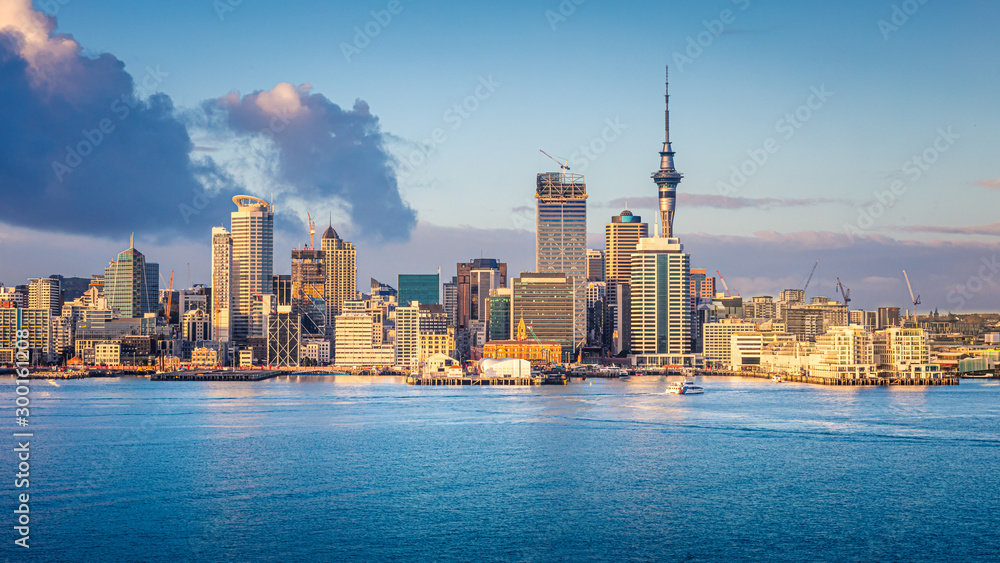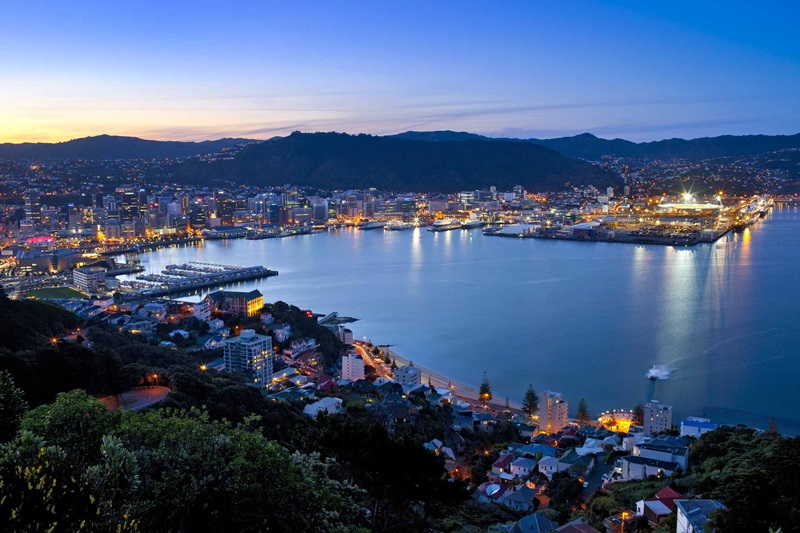
This report serves as a comprehensive and detailed professional guide for new escorts in New Zealand, with a particular focus on Auckland and Wellington. Unlike many countries worldwide, New Zealand's prostitution industry has been decriminalized under the framework of the Prostitution Reform Act 2003 (PRA), which means commercial sexual services are viewed as legal work, afforded the same rights and protections as other industries. This report delves into the legal foundations of this unique "New Zealand model," clarifying the rights and obligations of escorts and the support networks available to them.
The report provides a detailed overview of the practical aspects of the industry, including the pros and cons of working in a brothel versus operating independently, pricing strategies in Auckland and Wellington, and crucial measures for client screening and personal safety. Furthermore, it offers clear guidance on financial management, such as tax responsibilities and claimable business expenses. The central theme consistently revolves around safety, privacy, and empowerment, emphasizing that new escorts should position themselves as professionals with agency and actively utilize resources from industry support organizations like the New Zealand Prostitutes' Collective (NZPC).
Part I: Legal Foundations—Understanding the New Zealand Environment
The Prostitution Reform Act 2003 (PRA): A Framework for Human Rights and Safety
The passing of the Prostitution Reform Act (PRA) in 2003 marked a radical and pioneering stance on sex work in New Zealand. The primary goals of the Act are to "safeguard the human rights of sex workers and protect them from exploitation" and to "promote the welfare and occupational health and safety of sex workers". By decriminalizing prostitution, operating brothels, and street solicitation, the Act abolished previous laws that criminalized these activities, replacing them with a civil-law-based regulatory framework.
This decriminalization model stands in stark contrast to the "Nordic model" adopted by some countries, which criminalizes the purchase of sex in an attempt to reduce demand and combat the industry. In contrast, New Zealand's PRA views both the buying and selling of commercial sexual services as legal activities. The core principle of this legislation is that "sex work is work," asserting that individuals have the right to choose their employment freely under just and favorable conditions. The Act's passage has enabled sex workers to enjoy the same labor rights, workplace protections, and access to healthcare services as workers in any other New Zealand industry. This legal shift fundamentally changed the role of the police, who have transitioned from arresting and prosecuting sex workers to providing them with protection. This legal framework liberates sex workers from the status of criminals or victims, empowering them as workers with agency—a fundamental transformation of the New Zealand model.
Who Can Work Legally?
Under the PRA, not everyone is permitted to engage in sex work in New Zealand. The Act specifies that only individuals who are 18 years of age or older can legally provide commercial sexual services. At the same time, it is a serious criminal offense, punishable by up to seven years in prison, to assist, facilitate, or encourage a person under the age of 18 to provide commercial sexual services, or to pay for sexual services from them.
The law also places strict restrictions on the citizenship and residency status of sex workers. Only New Zealand or Australian citizens, or those with permanent residency in New Zealand or Australia, can legally engage in sex work or operate a prostitution business. For migrants on temporary visas, the law explicitly prohibits them from engaging in sex work, and violators may face deportation by Immigration New Zealand (INZ). Although the PRA's purpose is to "protect sex workers from exploitation," this restriction on migrants paradoxically weakens that goal. It unintentionally creates a vulnerable group of immigrant sex workers who lack legal protection. Fearing deportation, they may be unable to seek legal recourse or assistance from the police, making them more susceptible to exploitation. This contradiction highlights an unresolved complexity within the New Zealand model.
Local Bylaws and Regulation in Auckland and Wellington
While the PRA decriminalized sex work nationwide, it also gave local governments the authority to create bylaws to regulate the industry. Local councils cannot outright ban sex work but can establish rules regarding zoning, signage, and advertising. This layered approach—national decriminalization with detailed local regulation—is a key component of the New Zealand model's success. It allows sex work to coexist peacefully with urban environments without being completely prohibited, while balancing public interest by addressing potential public nuisances.
- Auckland: The Auckland Council does not directly issue brothel licenses. Anyone who wishes to control sex workers or their working conditions (i.e., an operator) must apply for a brothel operator's certificate from the Auckland District Court. The Council's role is primarily focused on urban planning and building consents, such as ensuring that the location of a commercial sex business complies with zoning regulations and that building alterations meet code .
- Wellington: The Wellington City Council also has relevant bylaws. According to its regulations, any advertising for commercial sexual services that is visible from a public road or place requires written approval. The Council assesses applications based on criteria such as whether the sign depicts or implies sexual activity, the extent of nudity shown, its size, and whether the content could be considered offensive. This reflects the local government's emphasis on maintaining public order and amenity.
Part II: Practical Considerations for Getting Started
Choosing Your Business Model: Brothel vs. Independent
For a new escort, a key decision is whether to work for a brothel or agency, or to operate as an independent private escort. Each model has its own unique advantages and disadvantages.
- Brothel/Agency Work: Working in a brothel offers a structured and supportive environment. Brothels typically handle advertising, provide a workspace (e.g., rooms, bedding, condoms, and lubricants), take photos, and even manage client screening and bookings . This offers new entrants an extra layer of safety and guidance. However, this convenience comes at a cost. Brothels often take a significant percentage of earnings, with some establishments taking up to 50% of the initial charge-out rate . To operate legally, any person who has "control" over a sex worker (such as hiring, firing, or setting shifts or fees) must hold an operator's certificate issued by the Auckland District Court.
- Independent Operations: As an independent escort, you have complete control over your business. This includes the freedom to set your own rates, choose your clients, and decide on your work hours and locations. All earnings are your own, with no need to share a cut with a third party. The law allows up to four sex workers to work together as equals without requiring an operator's certificate. This provides a pathway for new workers to build a support network and enhance their safety without sacrificing their autonomy. Of course, working independently also means the escort must handle all business responsibilities, including marketing, client screening, financial management, and safety protocols, which requires strong self-discipline and business acumen.
Pricing Guide: Rates in Auckland and Wellington
Escort service fees in New Zealand vary depending on the business model, location, and type of service, with a wide range reflecting a tiered market.
- Price Range: Street-based services can start as low as NZ40.Incontrast,pricesatsomehigh−endbrothelsinWellingtoncanexceedNZ450 per hour, even reaching NZ500,whiletopvenuesinAucklandcanseeescortsearningaroundNZ500 per night . Escort services advertised on websites often have a starting price of around NZ$230 .
- Factors Influencing Price: Pricing is not solely determined by location and business model. Other factors are crucial, such as the type of service (duration, oral sex, intercourse), the escort's experience, and personal characteristics displayed in advertisements .
This wide disparity in income shows that the New Zealand sex work industry is a highly differentiated market. While the industry as a whole generates up to NZ$240 million annually , not all workers benefit equally. Historical data indicates that despite the industry's total revenue growth, the personal income of many sex workers has stagnated or even decreased, suggesting that the majority of profits are captured by brothel operators . Therefore, for new entrants, choosing to work independently or with a reputable brothel is crucial for ensuring financial stability and personal safety.
The following table provides an estimated range of fees for escort services in New Zealand for reference:
Table 1: Estimated Escort Service Fees in New Zealand
| Service Type | City | Estimated Price Range (NZD) |
| Street-based services | Wellington | $40 - $100 |
| Website escorts | Auckland | Starting from $230 |
| High-end brothels | Wellington | Per hour $450-$500 |
| High-end brothels | Auckland | Per night approx. $500 |
Part III: Prioritizing Safety and Well-being
Client Screening and Boundaries
As an escort, your safety is the number one priority. Proactive and effective client screening is one of the most important measures for mitigating risk .
- Screening Strategies: Experts recommend using specialized verification services or seeking references and client reviews from other sex workers . During interactions, be aware of potential red flags, such as inconsistent information, a reluctance to provide details, or unsettling body language .
- Safe Meeting Locations: Choosing a safe, neutral meeting location is also crucial. For new clients, opt for public, well-trafficked areas like hotel lobbies or cafes . It's best to avoid secluded areas or private residences unless you have absolute confidence in the client's reliability .
- Professional Boundaries: Establishing and maintaining clear professional boundaries is the foundation of protecting your personal safety and privacy. Escorts should use a pseudonym and set up separate phone numbers and email accounts for work . Avoid sharing personal details with clients, such as your real name, home address, or family information . New Zealand law explicitly gives escorts the absolute right to refuse service or cancel an appointment at any time without providing a reason . This legal protection is a fundamental right that ensures personal safety.
Health and Hygiene
The PRA is not just a law; it is also a public health tool. The Act requires that both sex workers and clients take all "reasonable steps" to use a prophylactic sheath or other appropriate barrier during vaginal, anal, or oral penetration, or any other activity that could transmit a sexually transmissible infection (STI) . Violating this provision can result in a fine of up to NZ$2,000 . This regulation provides escorts with legal support to enforce safe sex practices, elevating the responsibility from a personal negotiation to a legal obligation.
- Healthcare Support: The New Zealand Ministry of Health collaborates with the NZPC to provide health and safety guidelines for the sex industry . Sex workers are entitled to the same healthcare services as other citizens. In Auckland and Wellington, sex workers are explicitly listed as an eligible group for free, confidential sexual health checks and treatment .
- Available Resources: Brothels are also legally required to display posters promoting safe sex practices. The NZPC provides free condoms, lubricants, and other safer sex supplies . This comprehensive legal and public health support system offers a strong safety net for escorts.
The following table lists contact details for free sexual health clinics and support services in Auckland and Wellington:
Table 2: Sexual Health and Support Service Contacts in Auckland and Wellington
| Service Type | City | Contact Information and Address |
| NZPC | Auckland | Address: 3/2 Canada St, Auckland CBD, Auckland 1010 Phone: 09-366 6106 |
| Wellington | Address: Level 4, 204 Willis St, Te Aro, Wellington 6011 Phone: 04-382 8791 | |
| Sexual Health Clinic | Auckland | Clinics in Greenlane, North Shore, and South Auckland offer free STI testing. Phone: 0800 739 432 |
| Wellington | Cuba St Clinic, 275 Cuba Street, Te Aro, Wellington 6011 Phone: 04-385 9879 or 0800 188 881 |
Part IV: Business Management
Marketing and Advertising
The PRA prohibits most forms of advertising, with the exception of restricted print media. In practice, however, escorts and brothels primarily rely on online platforms for marketing. For example, websites like EscortLocate offer free advertising services and claim to help escorts earn up to NZ$5,000+ weekly . These platforms typically require users to verify their identity to ensure safety and legality .
For a new escort, creating a compelling online presence is crucial. Research shows that personal photos, physical attributes, and age can influence client interest and the final fee . Therefore, escorts need to develop skills in digital marketing and personal branding, learning how to optimize their profiles, use a pseudonym, and manage their online image wisely to protect their privacy .
Financial Management: Tax and Expenses
Inland Revenue New Zealand has a dedicated factsheet (IR296) for the sex industry, which explicitly recognizes sex workers as "self-employed private operators". This means that escorts need to manage their finances like any other small business owner and are responsible for filing an annual individual tax return (IR3).
- Provisional Tax: If your annual tax bill is expected to exceed NZ$5,000, you must pay provisional tax in installments throughout the year.
- GST (Goods and Services Tax): If your annual turnover is over NZ$60,000, you are required to register for and pay 15% GST.
The existence of tax laws further legitimizes sex work and provides clear administrative guidance for new entrants. Escorts can legally reduce their tax burden by claiming business expenses.
Table 3: Claimable Business Expenses for Self-Employed Escorts
| Claimable Expense | Description |
| Work supplies | Condoms, lubricants, sex toys, etc. |
| Clothing | Clothing used exclusively for work |
| Advertising fees | Costs for online advertising platforms or print media |
| Medical costs | Industry-related medical expenses like STI and HIV tests |
| Home office expenses | A proportion of rent, electricity, and house insurance can be claimed if working from home |
Part V: Your Support Network
The New Zealand Prostitutes' Collective (NZPC): Your Key Resource
The New Zealand Prostitutes' Collective (NZPC) is an advocacy organization run by sex workers, for sex workers. The organization played a central role in drafting and passing the PRA. It advocates for the rights, safety, and health of sex workers by providing them with information, legal advice, business tips, and guidance on safe practices .
The NZPC offers a range of valuable resources for new entrants, including "New Worker Packs," free safer sex supplies, and confidential sexual health clinics . The existence of this organization demonstrates that the New Zealand sex work industry has a strong, self-governing body that is supported by the government. For a new escort, connecting with the NZPC means they are not alone but are joining a professional community with a wealth of experience and strong support.
Conclusion: The Path to Professionalism
Embarking on a career as an escort in New Zealand is a unique professional path that operates under a legal framework designed to protect and empower. The decriminalized model of the PRA has redefined sex work as a legitimate form of labor, granting escorts a range of rights comparable to workers in any other industry, including the right to refuse clients and legal support to enforce safe sexual practices. This legal recognition provides a strong safety foundation for new entrants, allowing them to focus on business management and personal security rather than fearing arrest.
The key to success for a new escort is to position oneself as a professional, self-employed individual. This not only means being financially astute, such as understanding tax responsibilities and claimable expenses, but, more importantly, being proactive in personal and professional safety. By utilizing client screening techniques, maintaining clear professional boundaries, and undergoing regular health checks, risks can be significantly reduced. Above all, new escorts should not underestimate the power of their support network. The New Zealand Prostitutes' Collective (NZPC) is the primary resource for new workers, offering unparalleled professional guidance, health services, and community support. In short, the legal environment in New Zealand provides a secure platform for escorts to operate safely, knowledgeably, and professionally, thereby achieving true empowerment and autonomy.





